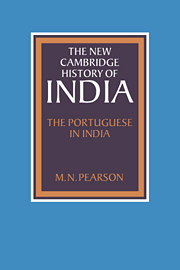Introduction
Published online by Cambridge University Press: 28 March 2008
Summary
Portugal is the oldest territorial state in Europe; India is one of the world's newer nations. Yet ironically history is much more important, and controversial, for Portuguese than for Indians. It is true that historical writing played a role in the Indian national movement, for some of the writing of the first half of the twentieth century was designed to foster patriotism and pride. Today however Indians are commendably relaxed about their history, as can be seen in vigorous controversies over historical matters in which it seems that all possible points of view can be, and are, presented. These debates are intellectual; the validity of the Indian nation is not dependent on the outcome.
This has usually not been the case in Portugal; too often their history has had present political meanings. Robert Southey visited Portugal in 1796, and 1800–1, enjoyed himself, and spent years working on a huge, and never completed, history of Portugal. It was going to be a wonderful book:
I believe no history has ever yet been composed that presents such a continuous interest of one kind or another as this would do, if I should live to complete it. The chivalrous portion is of the very highest beauty; much of what succeeds has a deep tragic interest; and then comes the gradual destruction of a noble national character, brought on by the cancer of Romish superstition.
(Quoted in Rose Maccaulay, They Went to Portugal, London, 1946, p. 164)- Type
- Chapter
- Information
- The Portuguese in India , pp. 1 - 4Publisher: Cambridge University PressPrint publication year: 1988

